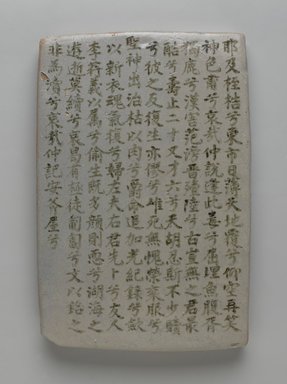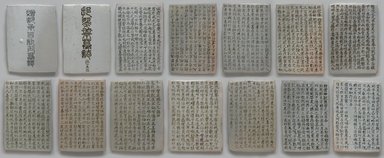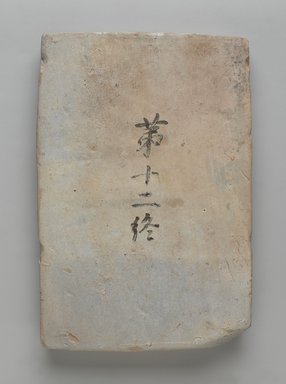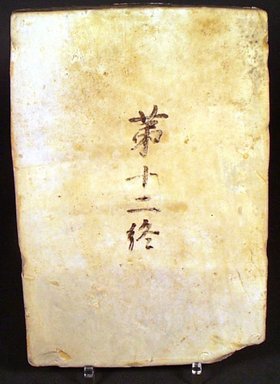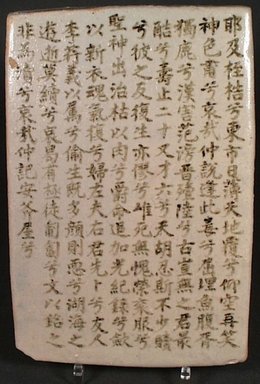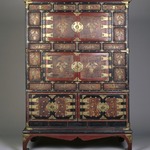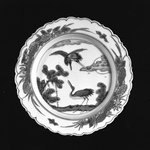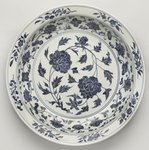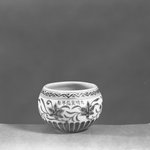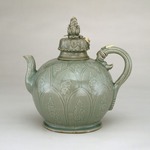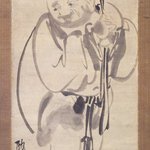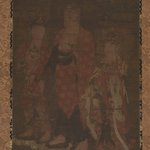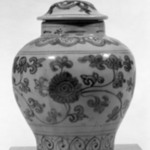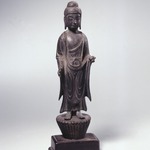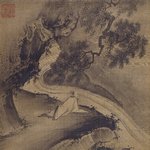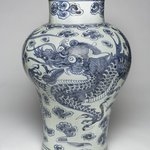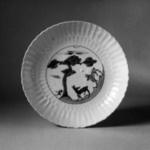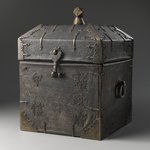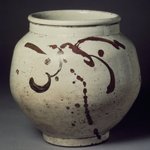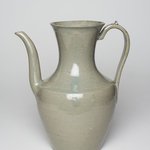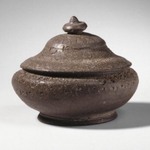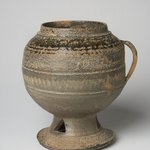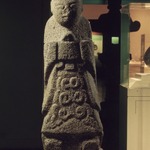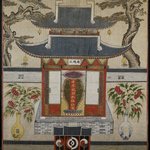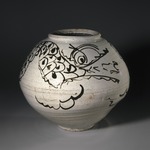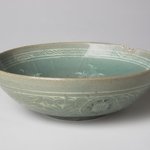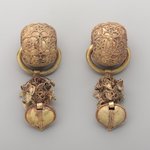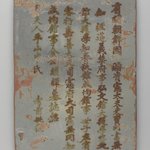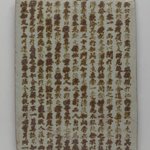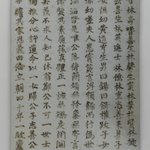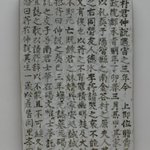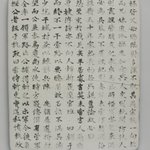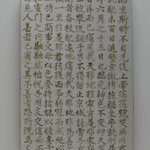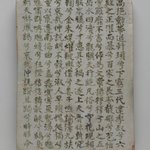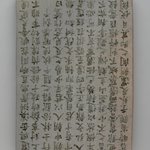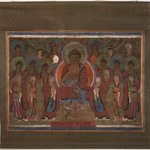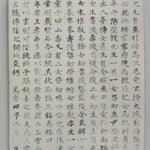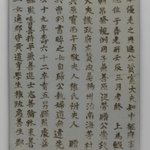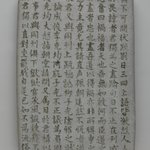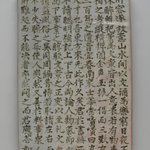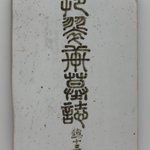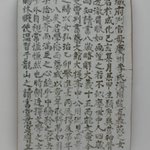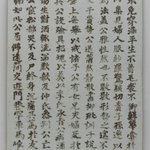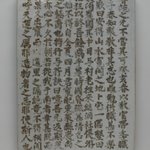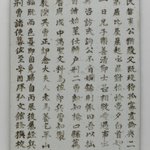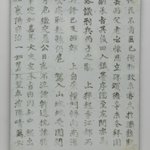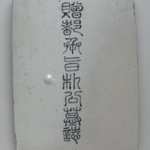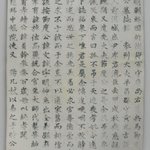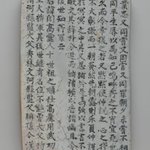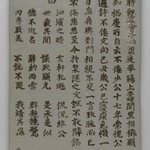Epitaph Tablet for Bak Eun (1479-1504), from a Set of 14
Asian Art
When important individuals died during the Joseon dynasty (1392–1910), they were commemorated in lengthy epitaphs that were inscribed on durable surfaces for posterity. This set of fourteen plaques (we are showing only part of the set) records the biography and family history of a celebrated poet, Park Eun (1479–1504), and even includes examples of his verses. This is an unusually early example of the use of porcelain for preserving epitaphs. Prior to this period, epitaphs were carved into stone. In this early period, iron oxide was used to write the text, whereas later cobalt blue would be preferred.
MEDIUM
Porcelain with underglaze
DATES
1509
DYNASTY
Joseon dynasty
DIMENSIONS
9 3/4 × 6 1/2 × 1 in. (24.8 × 16.5 × 2.5 cm)
(show scale)
ACCESSION NUMBER
2017.29.38
CREDIT LINE
Gift of the Carroll Family Collection
CATALOGUE DESCRIPTION
Epitaph plaque with 10 lines of text on the "recto" and one line of text on the "verso."
One of 14 plaques commemorating Park Eun (1479-1504), a celebrated poet. The commemoration was written by a friend of the poet, Yi Haeng, four years after the poet's death. The calligraphy is by Yi Yeongwon.
Epitaph plaques serve as memorials for the individuals with whom they were buried. They typically recount the career and ancestry of the subject, and were occasionally disinterred and replaced with updated versions. Most epitaph plaques were written in underglaze cobalt blue. This set is unusual because it is writen in underglaze iron red.
The text is written in Korean in Chinese characters.
MUSEUM LOCATION
This item is not on view
CAPTION
Korean. Epitaph Tablet for Bak Eun (1479-1504), from a Set of 14, 1509. Porcelain with underglaze, 9 3/4 × 6 1/2 × 1 in. (24.8 × 16.5 × 2.5 cm). Brooklyn Museum, Gift of the Carroll Family Collection, 2017.29.38 (Photo: , 2017.29.38_front_PS9.jpg)
IMAGE
front, 2017.29.38_front_PS9.jpg., 2018
"CUR" at the beginning of an image file name means that the image was created by a curatorial staff member. These study images may be digital point-and-shoot photographs, when we don\'t yet have high-quality studio photography, or they may be scans of older negatives, slides, or photographic prints, providing historical documentation of the object.
RIGHTS STATEMENT
No known copyright restrictions
This work may be in the public domain in the United States. Works created by United States and non-United States nationals published prior to 1923 are in the public domain, subject to the terms of any applicable treaty or agreement.
You may download and use Brooklyn Museum images of this work. Please include caption information from this page and credit the Brooklyn Museum. If you need a high resolution file, please fill out our online
application form (charges apply).
The Museum does not warrant that the use of this work will not infringe on the rights of third parties, such as artists or artists' heirs holding the rights to the work. It is your responsibility to determine and satisfy copyright or other use restrictions before copying, transmitting, or making other use of protected items beyond that allowed by "fair use," as such term is understood under the United States Copyright Act.
The Brooklyn Museum makes no representations or warranties with respect to the application or terms of any international agreement governing copyright protection in the United States for works created by foreign nationals.
For further information about copyright, we recommend resources at the
United States Library of Congress,
Cornell University,
Copyright and Cultural Institutions: Guidelines for U.S. Libraries, Archives, and Museums, and
Copyright Watch.
For more information about the Museum's rights project, including how rights types are assigned, please see our
blog posts on copyright.
If you have any information regarding this work and rights to it, please contact
copyright@brooklynmuseum.org.
RECORD COMPLETENESS
Not every record you will find here is complete. More information is available for some works than for others, and some entries have been updated more recently. Records are frequently reviewed and revised, and
we welcome any additional information you might have.
